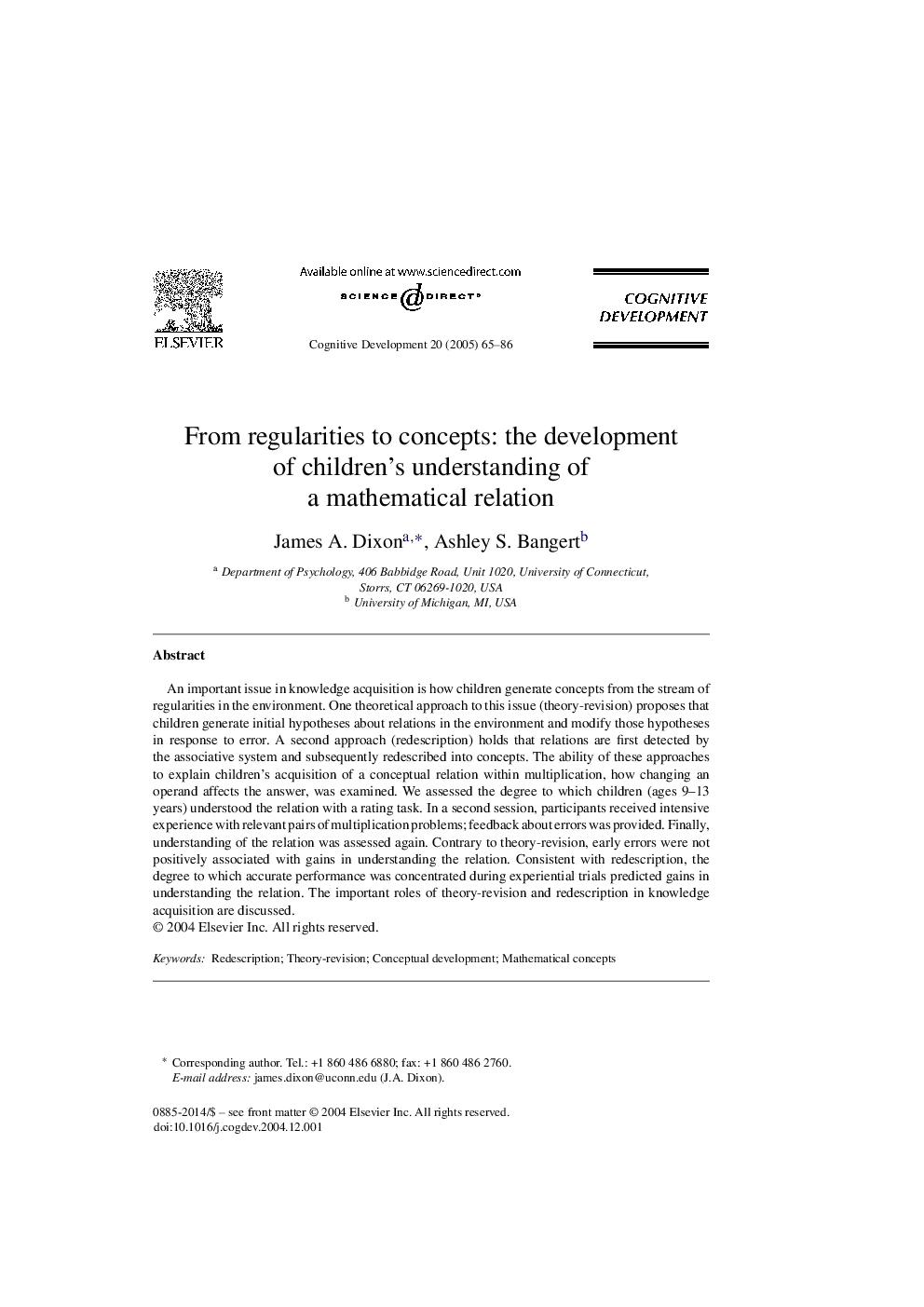| Article ID | Journal | Published Year | Pages | File Type |
|---|---|---|---|---|
| 10452302 | Cognitive Development | 2005 | 22 Pages |
Abstract
An important issue in knowledge acquisition is how children generate concepts from the stream of regularities in the environment. One theoretical approach to this issue (theory-revision) proposes that children generate initial hypotheses about relations in the environment and modify those hypotheses in response to error. A second approach (redescription) holds that relations are first detected by the associative system and subsequently redescribed into concepts. The ability of these approaches to explain children's acquisition of a conceptual relation within multiplication, how changing an operand affects the answer, was examined. We assessed the degree to which children (ages 9-13 years) understood the relation with a rating task. In a second session, participants received intensive experience with relevant pairs of multiplication problems; feedback about errors was provided. Finally, understanding of the relation was assessed again. Contrary to theory-revision, early errors were not positively associated with gains in understanding the relation. Consistent with redescription, the degree to which accurate performance was concentrated during experiential trials predicted gains in understanding the relation. The important roles of theory-revision and redescription in knowledge acquisition are discussed.
Related Topics
Social Sciences and Humanities
Psychology
Developmental and Educational Psychology
Authors
James A. Dixon, Ashley S. Bangert,
